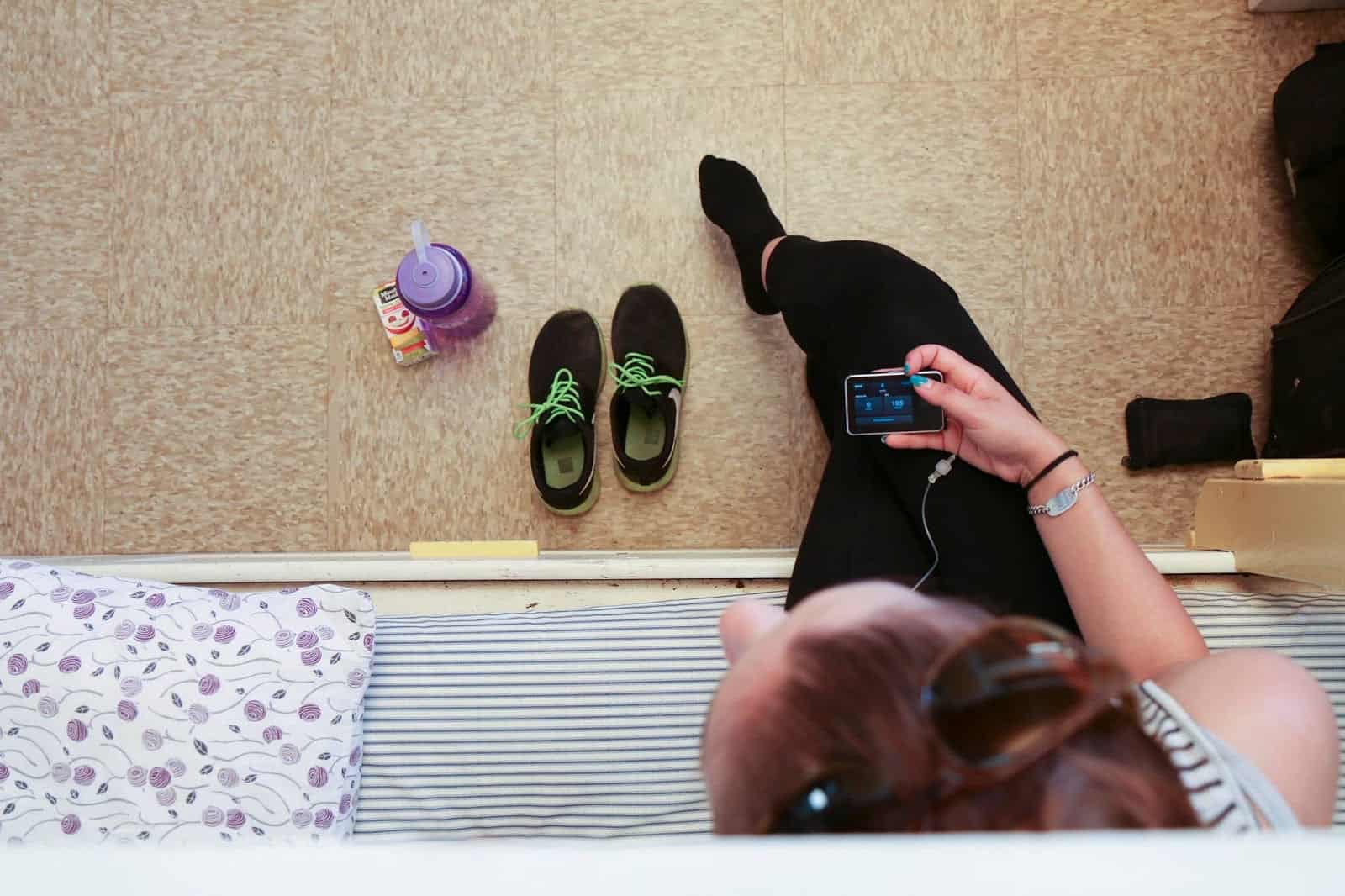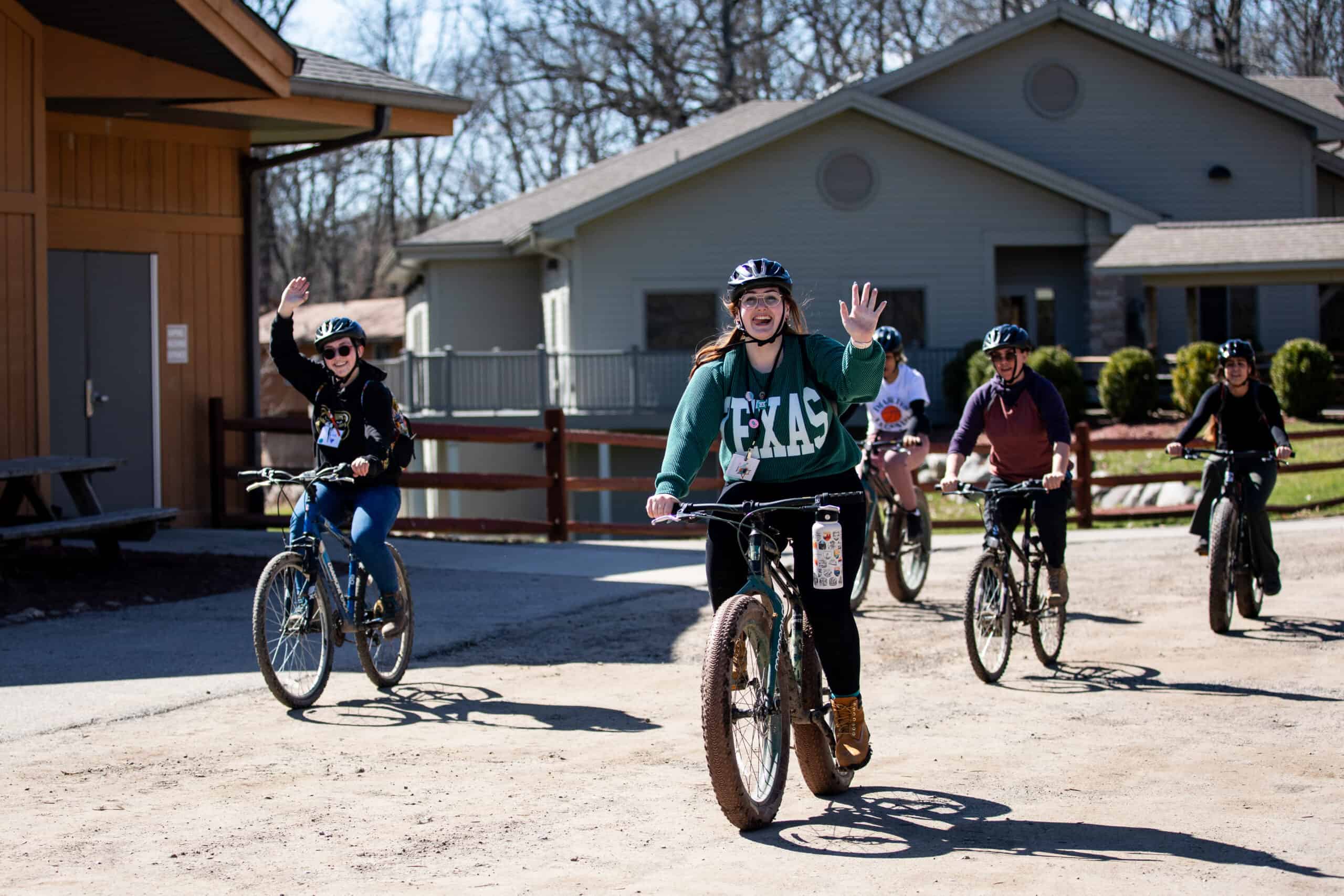There’s a lot to think about when a new semester starts, and even more if you have diabetes. In this blog, we’ll explore some strategies for managing school with type 1 diabetes to help you get back into the swing of things with ease!
Changing Activity Levels → Changing Insulin Needs
Something to keep in mind is that your activity level may change significantly as you transition from your summer activities to your school lifestyle. The brain is the most energy-demanding organ, and I personally find that the increased mental strain of school always makes me run low when I return after the summer. Any potential changes in your insulin needs will completely depend on your body and lifestyle, but paying extra attention to your BGs during this time may help if you need to make any adjustments!

School Accommodations
It’s also good to know that students with diabetes are entitled to certain accommodations at school. Common accommodations for T1Ds include being allowed to eat and drink in class, use technology to check your BG in class, take breaks during exams, receive extensions, retake tests and quizzes, and the like.
Many students also receive access to priority course registration, housing, meal plans, and roommate options.
To access these accommodations, you usually have to apply with your school’s Disability/Accessibility Services office and provide documentation from your doctor. If you’re starting at a new school, make sure to begin this process as early as possible! It can take a few weeks, and it is best to get it sorted before your classes start ramping up. Some classes like hands-on labs, for example, may require more complex accommodations and planning. Registering with your Disability Services office can help facilitate conversations with your professors about your diabetes and any flexibility you may need.
If you’re interested in learning more about disability rights as they pertain to type 1 diabetes in the U.S. or Canada, you can read more in our previous blogs.
Campus Life
When planning out your course schedule, it can be helpful to sign up for classes that interfere minimally with your usual meal times. Occasionally there’s a long 3-hr lecture that I have no choice but to take during lunch or dinner time, in which case I just eat in class! It’s nearly impossible to learn when you feel your blood sugar plummeting.
It can also be nice to take some time to walk around campus before your first day to identify where your classes will be and where you can grab food. If you have back-to-back classes on opposite sides of campus, it’ll be good to know that in advance so you can manage your BGs around that mad dash.
In addition to low supplies, remember to bring a site change in your bag with you to class if you’re on a pump! It’s handy to carry with you so you don’t have to hustle back to your dorm if you ever need to change it unexpectedly.
Dorm Life
If you’re starting university, chances are you will be living in a dorm! It’s important to notify your roommates, RA, and other people living with you that you have type 1 diabetes. You can also let them know what to do when you are experiencing a low BG and teach them how to administer glucagon.
You’ll want to make sure you have a fridge in your room to store your insulin. And always keep your room stocked with ample low supplies, especially if your dining hall isn’t open 24/7! Speaking of the dining hall, check with food services to see if they offer nutrition facts–sometimes they even post them online in advance of meals.

Access to Diabetes Care
If you’re moving for school, other important things to consider are where you will fill your prescriptions and how you will see your doctors. You may want to transfer your prescriptions to your new local pharmacy. It’s also a good idea to check out your school’s health services and health insurance plans. Many endocrinologists are available by telemedicine or to talk about recent BG data over email, so communicating with your doctor about what this transition might look like for you will be best.
Finding Community

Courtesy of @cdnuoft on Instagram
ID: Large group of friends posing with various diabetes tech
Starting school around a brand new group of people can be tough, especially if they don’t understand what it’s like to have diabetes. The College Diabetes Network (CDN) was founded to connect college students with type 1 diabetes and provide them resources, support, and community. They have Chapters at universities across North America. We were lucky enough to sit down with CDN’s Molly, Sarah, and Anna to learn more!
Eleanor (CIM): Why is it important to find a T1D community?
Molly, Sarah, and Anna (CDN): It’s important to find that community because no one understands the challenges of diabetes like other people with diabetes. It’s a different level of support. While your family and friends love you and want to be there for you, if they don’t have diabetes, they just don’t get it as much as someone else who lives with it does. The community can help you navigate challenges, whether you need to talk to someone about going through burnout, or if you’re low and forgot glucose tablets.
Also, you’re meeting so many new people on campus–other students, roommates, professors, etc.–and having to explain diabetes over and over again can be tiring. There might be a lot of new people who do not understand diabetes, so you have to take the time to explain and break down misconceptions. That kind of self-advocacy work is exhausting, but that’s where peer support can really help.
What kinds of events and activities does CDN have for students with diabetes?
The Chapters can do various events, it’s up to them and what they want to plan. One Chapter last semester did a socially distanced tie-dye event. They hung out, played games, tie-dyed shirts, and had lunch together. Some Chapters just go and get Chipotle together once a month and talk. Some Chapters do advocacy work and go to their local statehouse to talk to legislators about a bill, others go all the way to Washington, D.C. and talk to legislators. It really depends on what kinds of interests they have. We support Chapters on the national level with resources, information, contacts, speakers, things like that.
What kinds of CDN resources are available for students with diabetes looking to learn more?
Our guides on our website are really helpful (You can find them at CDN’s Resource Hub!). We have Off to College guides for students and caregivers offered in English and Spanish digitally. We also have a guide specifically for young adults recently diagnosed with diabetes. We have an Off to Work guide that’s great for internships and all the way up to your first job. Related to work, we provide different career opportunities that are really great for students nearing graduation and thinking about stepping into the diabetes sector. That happens often and we have all sorts of internships and opportunities available to them.
We also have CDN REACH™ guides targeted towards campus administrators. There’s one for campus health centers, one for disability services, and one for counseling and mental health services. The guides explain to all these people what diabetes is, how type 1 is different from type 2, why you might need support from those different offices, and what that support might look like. People will sometimes say they had to fight their disability services office to say that they needed help, but those people are supposed to be looking out for you and you shouldn’t have to advocate to them and then also a professor. Hopefully these guides will help the next type 1 that comes onto campus so they don’t have to deal with that.
Finally, we have We Speak Diabetes videos that get into the nitty gritty of what you need to know as a type 1 when you’re selecting health insurance for the first time. It can be really stressful when you have to leave your parent’s health insurance plan or get your own plan sooner than that, but these videos are a really great resource.
Do you have any tips for heading back to school with type 1 diabetes that you would like to share?
- Designate a party buddy: If you’re going out to a party and going to be drinking, make sure someone with you knows you have diabetes because being low looks similar to being drunk. Having a party buddy is really important–and that’s where a CDN Chapter might be really helpful! A Chapter member would know what type 1 is and how to treat a low. Read more on CDN’s Partying With T1D page.
- Take a supply inventory: It’s really important to do a supply inventory before heading off to campus. You’re going to be thinking and focusing on a lot of other things besides your diabetes, and you don’t want to have that moment where you suddenly realize you’re down to your last Dexcom sensor.
- Mentally prepare to explain your diabetes: Make sure to tell your roommate you have diabetes before you get to campus, and mentally prepare to have many similar conversations with other new friends. You might want to have a set speech prepared so you can cut to the chase and avoid feeling burned out from talking about it. It’s a lot easier on yourself if you share earlier, and it’s important for your safety to be open and willing to have conversations.
How can interested students get involved with CDN?
Find CDN Chapters near you with this Chapter map! Note that the map may not immediately reflect the most recently formed Chapters. If you there isn’t a Chapter to join in your area, check out this page about starting a new Chapter or email chapters@collegediabetesnetwork.org.
Canada’s first CDN Chapter was founded at the University of Toronto (U of T). We also had the pleasure of speaking with their President, Marley! Check out our conversation below to learn more about CDN from a student’s perspective.

Courtesy of @cdnuoft on Instagram. Marley is second from the left.
ID: The 5 co-founders of University of Toronto’s CDN Chapter wearing blue CDN shirts and posing with their diabetes tech in front of a library.
Eleanor (CIM): How did you get involved with CDN, Marley?
Marley (CDN U of T): I was in one of my classes, and I saw another student with tubing hanging out of her pants. I didn’t know if it was an iPod or an insulin pump, but I decided to approach her after class. Turns out, it was an insulin pump and we both had type 1 diabetes. We went for a walk and actually bumped into another student with type 1 diabetes! Through a fortunate chain of events, we brought in an additional couple of students with type 1 diabetes and the CDN U of T chapter was founded! It was really special to start a CDN Chapter in Canada at the University of Toronto, the birthplace of insulin. The University of Toronto is a special place for people with type 1 diabetes, and it’s so nice to have a diabetes community there. The Chapter has grown so much in the last few years! It started off with just a few of us going to coffee and talking about diabetes, and now we have dozens of people at every event. Seeing us grow into a network of friends with diabetes supporting each other has been the highlight of my undergrad degree!
What kind of events does University of Toronto’s CDN Chapter hold?
Before the pandemic, we were doing larger gatherings like pub nights, ice cream events, and coffee meetups. We’ve also had international events with CDN Chapters in the States. Over zoom, we’ve been doing more international events too because it’s easier than ever! We had a big zoom event with 3 or 4 different chapters and we did speed friending and trivia. We’ve also had an online exercise event where one of our executive members led us through an exercise routine and we talked about blood sugar management during exercise.
Next year, we’re hoping to have a safe and distanced event like a picnic. We’ve also been hoping to do an official online mental health event with a speaker. Overall, the events really change based on what people want and need based on the time. We’re very adaptive! If someone has an idea, we can roll with it.
The foundation of our Chapter is friendship. If you have questions about technology, accessibility services, or if you just want to talk about what is happening in your life, we’ll talk about anything. We also discuss mental health frequently, as that is an important topic for students with diabetes. At every event, no matter what, that’s there. We also discuss questions people don’t want to ask their doctor–for example, about alcohol or insulin pumps and sexual activity. It can be so nice to be able to ask people your age because it can feel less stigmatizing.
Why is CDN important to you?
Some of my closest friends and favorite memories are from the CDN U of T Chapter. I hope that other people feel that love, support, and understanding when they come to our events. Over the years, my friends with T1D and I have really relied on each other. Once someone in our group was having extreme low blood sugar, but didn’t have any snacks. She sent out a group text and 2 people were able to bring her snacks! Additionally, with accessibility services and health insurance, there’s power in numbers. We all have each other to share information, share resources, and stand up for each other.
Sometimes you don’t know how much you need something until you have it. I can’t imagine undergrad without that support. There’s so much community knowledge that medical professionals don’t always have access to. People your age that live with type 1 diabetes have similar life experiences and challenges and so they can help offer solutions.
If you’re not sure whether you need a diabetes community or whether you should be looking for it, it can’t hurt to try. I encourage people who are hesitant to reach out and look for other people with diabetes to connect to because only good things come from it!
Who can join U of T’s CDN Chapter?
University of Toronto students (undergraduate and graduate students from all 3 campuses!) and alumni with diabetes, young adults in the Greater Toronto Area, really anyone that has diabetes or cares about diabetes can come to our events! We welcome people who don’t have diabetes to get involved and learn. Zoom events have also allowed us to have a much wider audience. I love when people bring their friends and loved ones to our events.
Even if you’re not a person that is super open about having diabetes, it can still be valuable to have a diabetes safe space where you can be more open in talking about it. I know people who don’t identify with their diabetes very much or don’t want to talk about it–there’s room for them at CDN U of T! Or if you are an amazing diabetes advocate, there’s room for you, too! There’s so many kinds of people with diabetes, but I think everyone can benefit from the space regardless of how they relate to their diabetes personally.
How can people reach out to U of T’s CDN Chapter if they are interested in learning more or joining?
Send us a message on Facebook or Instagram at @cdnuoft or send us an email at utoronto@collegediabetesnetwork.org!
Managing type 1 diabetes in the school setting can be challenging. There’s so much to think about between adjusting your insulin dosing, setting up accomodations, navigating campus and dorm life, or transitioning your healthcare…but finding a diabetes community can help with all of it! And the College Diabetes Network is a great place to start finding resources and diabuddies. We hope this blog helps make the transition back to student life as smooth as possible. Happy studying!






